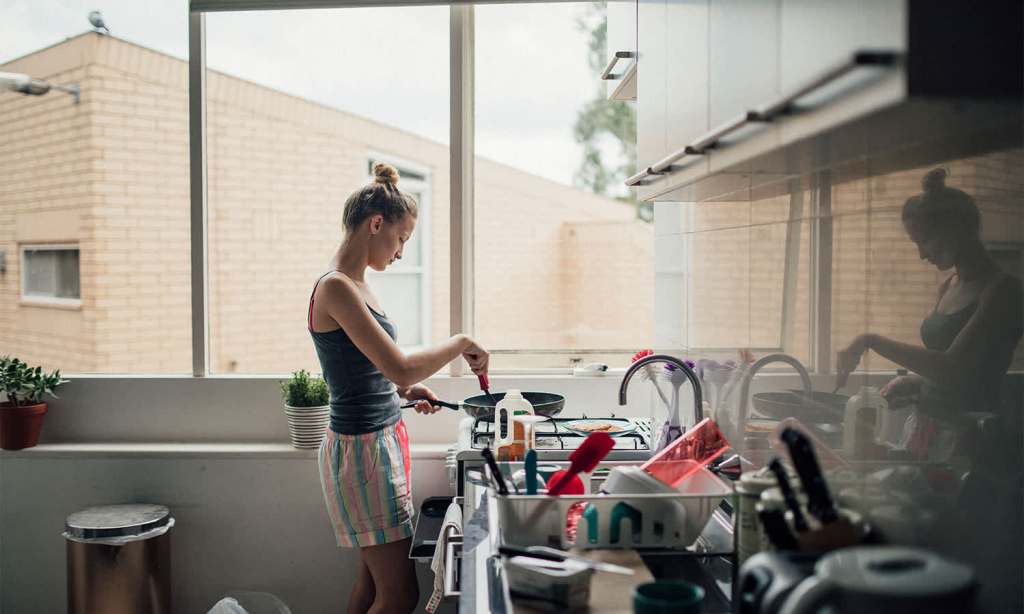If 2021 has gotten you down, and 2022 is looking worryingly like it might not be a whole lot better, there’s a simple trick you could try; buy your own home.
That’s right, according to research from Finder, owning your own home could be the key to happiness. Why didn’t we think of this?
According to Finder’s Consumer Sentiment Tracker, a national survey of more than 30,000 respondents, those who rent report lower levels of happiness and higher levels of money stress than homeowners.
On average 83% of homeowners report being happy, compared to 69% of renters.
A concerning 26% of renters admit they are ‘extremely stressed’ with their financial situation, compared to 15% of homeowners.
Sarah Megginson, Senior Editor of Money at Finder, said the data is worrying.
“We know mortgage stress is a real thing, but our research shows renters are struggling the most,” she said.
“Renting itself doesn’t make people stressed or unhappy. Owning a home is correlated with a higher income and cash position, which is leading to higher rates of happiness and financial wellbeing to a certain extent.
“Renters are more likely to be students, young people starting their careers, or those on lower incomes, which can make it difficult to get into the housing market.”
Finder’s research shows homeowners save nearly twice as much money per month ($989) as renters ($516).
When it comes to credit cards, renters will take just over nine months to pay off their debt — notably higher than the five months it will take for homeowners.
Megginson said there are also longer-term impacts of being unable to save.
“Being in a tricky financial position can mean struggling to pay for bills today, but it also prevents you from investing in your future.”
Finder’s analysis found homeowners have six times more money invested in shares ($24,732) than renters ($3,762) on average.
Megginson said however that it wasn’t all doom and gloom for renters.
“It is absolutely possible to save for a house deposit while renting, as long as you’re smart about your money where it counts.
“Your rent is most likely your biggest expense, so moving to a cheaper suburb or finding a few housemates could help you bring down the cost.
“If you have enough saved up, you could also look at ‘rentvesting’ — renting a home for yourself while owning a more affordable investment property.
“You could also look at buying in partnership with friends to get your foot on the property ladder — just know sharing finances can be tricky,” Megginson said.
The data also shows that renters have, on average, just $13,951, in cash savings, compared to the $40,854 that homeowners have.
61% of renters feel secure in their job, compared to 67% of homeowners.
Interestingly, 17% of renters own cryptocurrency, just slightly under the 20% of homeowners who do, and renters also seem to be more concerned about the environment, with 69% saying that they worry about their carbon footprint, compared to 63% of homeowners who say they do.
Saving for a House Deposit
If you want to get off the rental treadmill and into the relative security of homeownership, it’s hard but not impossible to do. Here are the top three tips from Finder as to how you can achieve that.
Determine your deposit size
Get a rough idea of what you need to save — the typical house deposit is 20% of the property price, but many lenders will accept a deposit as low as 10% or even 5%.
Get serious about saving
Set a budget and find ways to cut back. Budgeting tools like the Finder app can categorise your spending so you can see where you can cut back and build up your bank balance.
Get help if you can
Check to see if you’re eligible for any government grants or if you have family who is willing to help. Government grants are conditional, depending on things like the age or value of the property. If your parents own their home and are willing to guarantee part of your deposit, you can save a smaller deposit.
Read more stories from The Latch and subscribe to our email newsletter.







